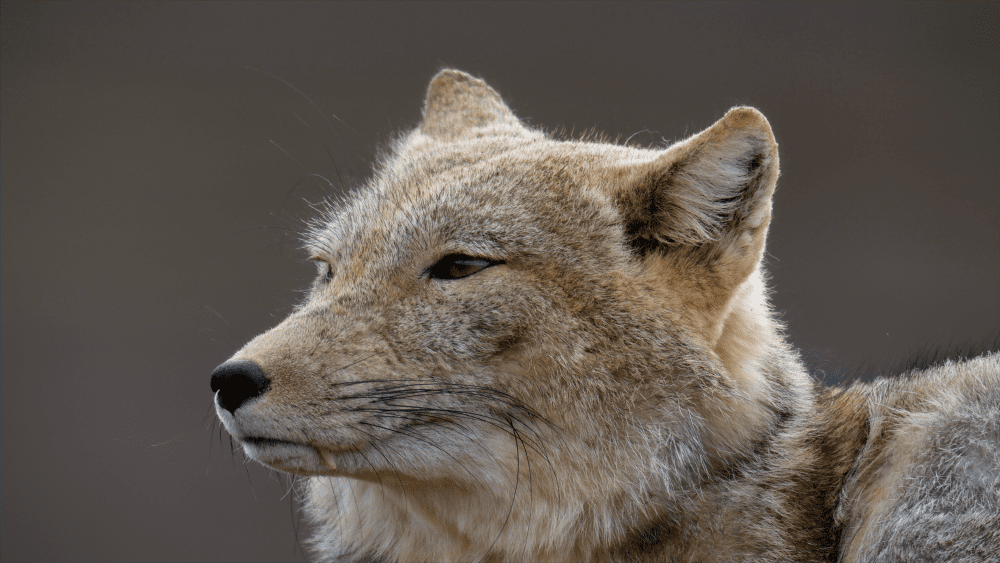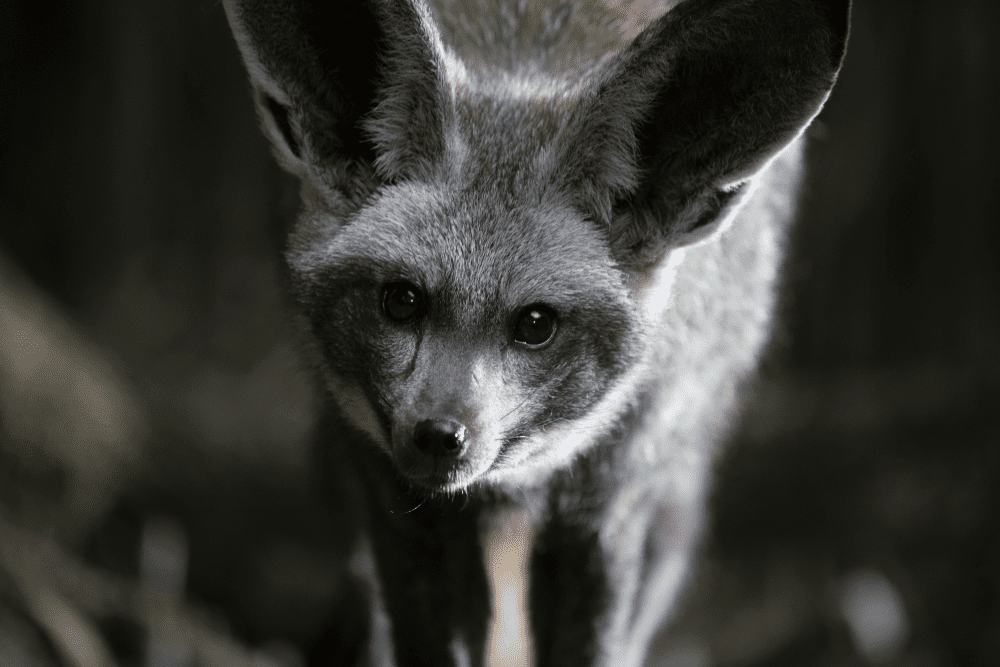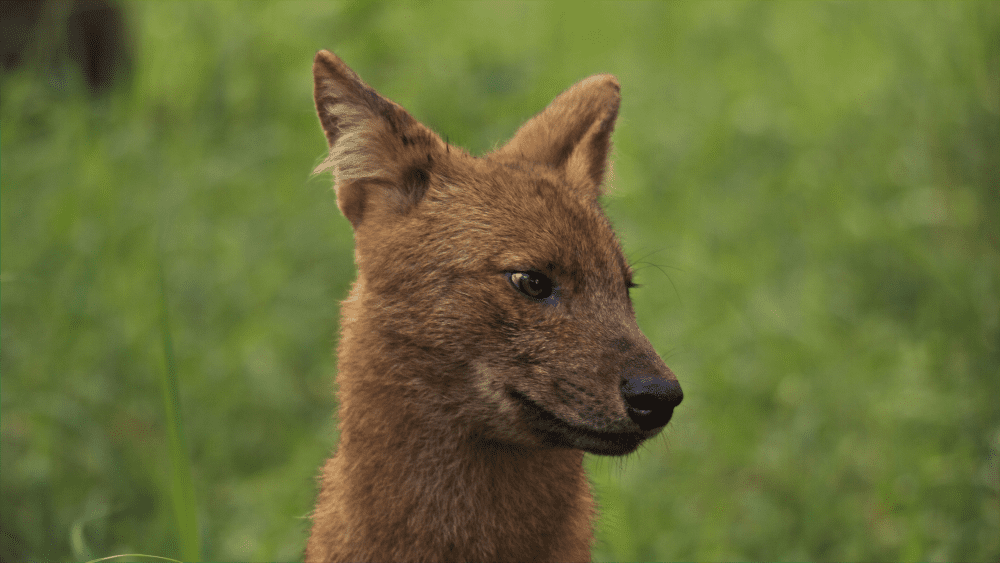Do you love dogs? No but seriously, do you love them? If so, we’ve got some great news for you as January 2023 is getting a fluffy injection from the BBC as they dive into the world of dogs, exploring these animals’ wider, wild families.
Dogs In the Wild: Meet The Family is the first single species series about dogs that has been produced by BBC Studios’ Natural History Unit. Narrated by Chris Packham, three episodes will explore the 37-strong canid family from the rugged peaks of the Himalayas to the blistering Sahara desert.
Among them is the world’s smallest canid, the fennec fox. At less than 20 centimeters (8 inches) tall, it’s evolved to have packed several Sahara-desert-friendly features into its tiny frame. We caught up with Gavin Maxwell, production director of episode one of the series, to find out more about the curious canids.
Your episode focuses on the tiniest of the canids, can you tell us a bit about fennec foxes?
The fennec fox is the world’s smallest wild dog. It’s also very shy, and lives in small dens in the Sahara desert. It’s a challenging character to film! The fennec is supremely well adapted to desert life: a camouflaged sand-coloured coat, giant ears with a network of veins that act as air conditioning units, and an ability to eat pretty much whatever scraps it can find, including insects, berries, and roots.
The one thing in short supply is water, but the fennec’s kidneys are so well adapted it’s the one dog that doesn’t need to drink – it can glean the water it needs from its food! As well as filming their behaviour we also draw attention to an important conservation story: the illegal trade in fennec foxes, much of it for photo opportunities with tourists. There’s a risk local populations of fennecs will be wiped out by this trade.

They may look serious, but the Tibetan fox can be very silly. Image credit: BBC NHU
Any funny stories from filming?
Many wild dog species display an inherent ‘dog-ness’ which I find really endearing – for example we have a lovely shot of a Tibetan fox furiously digging a hole as it tries to catch a rabbit-like pika, but the camera pulls focus to reveal the pika casually sitting in the foreground watching the fox – as though thinking ‘what on earth are you doing?’ This is the kind of crazy thing my own dog would do!
We spent many nights following bat-eared foxes across the Makgadikgadi Pan in Botswana as they searched for termites to eat. Seeing them at night under the stars with our low-light cameras, the camera op decided they looked just like ‘Yoda’. That image has stuck in my mind now, but I quite like it!
Most wild dogs were naturally wary of us, but red foxes on the streets of London were the opposite: our camera op had spent so much time with them, and knew them so well, it was often a problem keeping them far enough away to film. They would come right up and explore the contents of our camera bags, and when we were lying on the ground to get eye-to-eye shots one particularly bold young fox would climb on the camera op’s back!

The bat-eared fox, aka Yoda. Image credit: BBC NHU
Can it be challenging?
Many wild dog species are active at dawn, dusk, and at night. These are potentially challenging conditions for cameras, so we had to use equipment with impressive low light capabilities. Wild dogs can also cover large distances in search of food, so it’s hard keeping up with them. Our team in Brazil were filming the tallest wild dog, the Maned wolf: its long slender legs allow it to glide across the savannah grass, enabling it to cover dozens of kilometers each day. Our poor crew meanwhile had to lug their heavy gear and clunky tripods as they tried to keep up with it.
Many stories had to be filmed in and around COVID restrictions: my mandatory quarantine period for the bat-eared fox shoot was almost as long as the shoot itself. Meanwhile, government restrictions meant we arrived a full nine months late for our fennec fox shoot in Morocco, followed by a mad scramble to leave the country when a further lockdown was announced during filming. We caught the last flight out.

The “talkative” dhole is Maxwell’s current favorite. Who’s yours? Image credit: BBC NHU
What do you hope people will take away from series?
The Canids are a diverse family with 37 different faces – including wolves, foxes, and jackals. Each is a wonderful and surprising character – from the peculiar Maned wolf (like a fox on stilts!), to the beautiful Arctic fox in its winter coat: whenever I watch the series I have a different favourite… it’s currently the very talkative Dhole.
Canids are the world’s most widespread carnivores, thanks to their amazing combination of teamwork, hunting skills, and adaptability. But despite their abilities, many are facing huge challenges: for example, human infringement & cultivation of land has led to the Ethiopian wolf being listed as endangered, with only 500 left.
Episodes one and two celebrate the remarkable natural behaviour of dogs in the wild, while episode three looks at the latest science and conservation: there have been some extraordinary insights into Canine behaviour, including the phenomenon of “broken heart syndrome” exhibited in African wild dogs when separated from their packs.
Catch Dogs In the Wild: Meet The Family on BBC One from December 28 running weekly through January.
Source Link: Calling All Dog Lovers: World's Smallest Canid Stars In New BBC Documentary